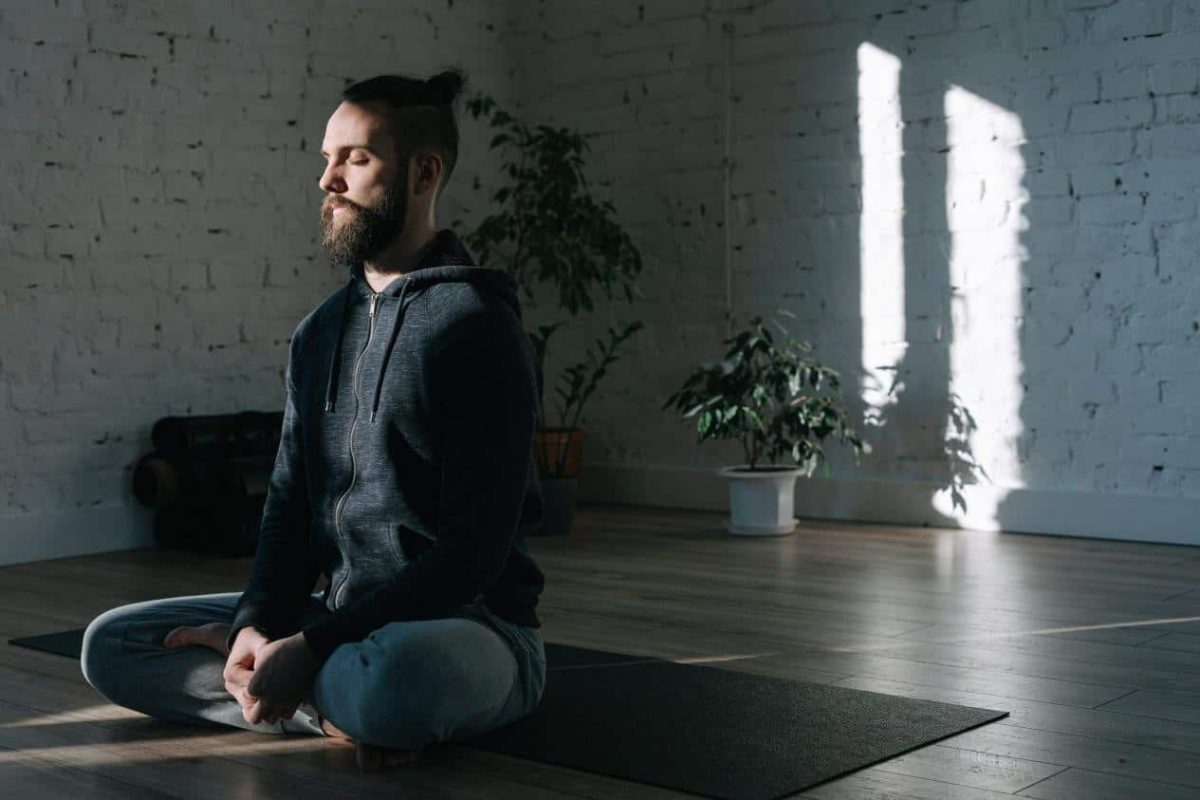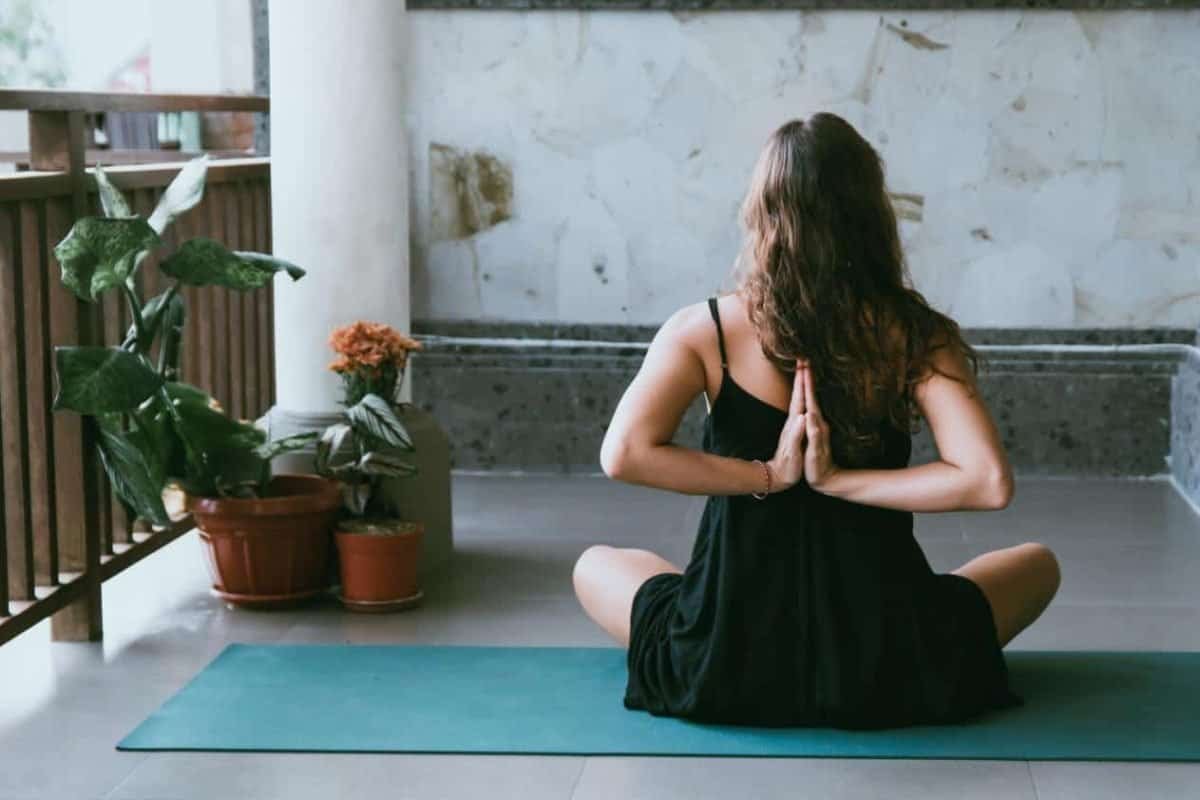Meditation is an age-old practice that has been used by many cultures for centuries to promote physical and mental well-being. While there are many different ways to meditate, the basic principle is to focus on a specific object or thought to achieve a state of calmness and clarity.
meditation has been shown to have several benefits for both physical and mental health, including increased strength and fitness, improved concentration and focus, lower stress levels, and improved sleep quality.
In addition, meditation can also help to enhance our immune system and reduce pain perception. While meditation requires time and effort to learn, the benefits far outweigh the investment, making it an excellent way to improve our overall health and well-being.
In the following paragraphs, we will examine how meditation strengthens us.

Meditation Helps Cultivate Mental Grit
When we think of meditation, we often consider it a way to relax or de-stress. And while it can certainly be used for those purposes, meditation can also help us to develop mental grit and strength. By sitting with our thoughts and emotions, meditation allows us to get comfortable with discomfort.
We learn to observe our thoughts without becoming attached to them, which can help us develop a greater sense of detachment and perspective in our everyday lives. As a result, we become better able to handle challenges and setbacks without getting bogged down by negative thinking.
In addition, meditation can help to increase our confidence and self-awareness, both of which are essential components of mental grit. So if you’re looking to develop greater strength and resilience, meditation may be worth a try.
It Encourages Proper Breathing
Breathing is an important part of meditation. Proper breathing helps to oxygenate the blood, relax the body, and focus the mind. It also helps to build muscle and improve stamina. The goal of meditation is to focus on the breath and to allow the body and mind to relax. In order to do this, it is important to track the breath.
For example, inhale for a count of four, hold for a count of four, and exhale for a count of four. This helps to regulate the breathing and prevent distraction. Additionally, proper breathing helps in exercising by providing more oxygen to the muscles. As a result, meditation helps to improve physical as well as mental health.
It Helps Manage Pain
Meditation has been shown to help people manage pain. A 2014 study found that meditation can increase pain tolerance by helping people to focus on their breath and tune out distractions. The study found that meditation helped people to better cope with both chronic and acute pain.
Other studies have shown that meditation can also help to reduce the perception of pain. One study found that people who regularly meditated had a reduced response to painful stimuli, both in terms of brain activity and self-reported measures of pain. Meditation has also been shown to help people manage other types of pain, such as the pain of arthritis.
A 2012 study found that meditation can help to reduce the intensity of arthritis pain and improve other symptoms, such as fatigue and anxiety. Overall, meditation appears to be an effective way to increase pain tolerance and reduce the perception of pain.
It Minimizes Cortisol Levels
When we experience stress, our body releases the hormone cortisol. This is part of the “fight or flight” response, and it helps us to deal with short-term stressors by giving us a burst of energy.
However, when cortisol levels remain elevated for long periods of time, it can lead to health problems such as anxiety, depression, and difficulty sleeping. Meditation has been shown to be an effective way to reduce cortisol levels. In one study, participants who practiced meditation for 20 minutes per day had significantly lower cortisol levels than those who did not meditate.
Additionally, meditation has been shown to encourage recovery from stressors. In one study, meditation was found to reduce the negative effects of stress on the immune system. meditation appears to be a promising tool for managing stress and promoting recovery.
How to Make the Most Out of Meditation
Anyone can benefit from meditation, no matter how busy or stressed they are. In fact, just a few minutes of meditation can help to improve your mood and focus. If you’re new to meditation, here are five ways to get the most out of it:
- Find a comfortable place to sit or lie down. You don’t need to be in the lotus position or anywhere fancy – just make sure you’re comfortable.
- Set a timer for however long you want to meditate. This will help you to relax and not worry about the time.
- Close your eyes and begin focusing on your breathing. Inhale deeply and slowly, then exhale slowly. Pay attention to the sensation of your breath movingin and out of your body.
- If you notice your mind starting to wander, that’s okay – simply return your focus to your breath. Meditation is about training your mind to focus, so don’t worry if your mind wanders at first. Just keep coming back to your breath.
- When the timer goes off, open your eyes and slowly get up from your seat. Take a few deep breaths and notice how you feel – chances are, you’ll feel more relaxed and centered than when you started.
Final Word
While the research on meditation and strength is still in its early stages, the current findings are promising. It seems that regular meditation may lead to increased muscle strength and power. If you’re looking for an edge in your next workout, consider adding a few minutes of mindfulness practice to your routine. Who knows, you might just be able to lift heavier weights and achieve greater gains!










